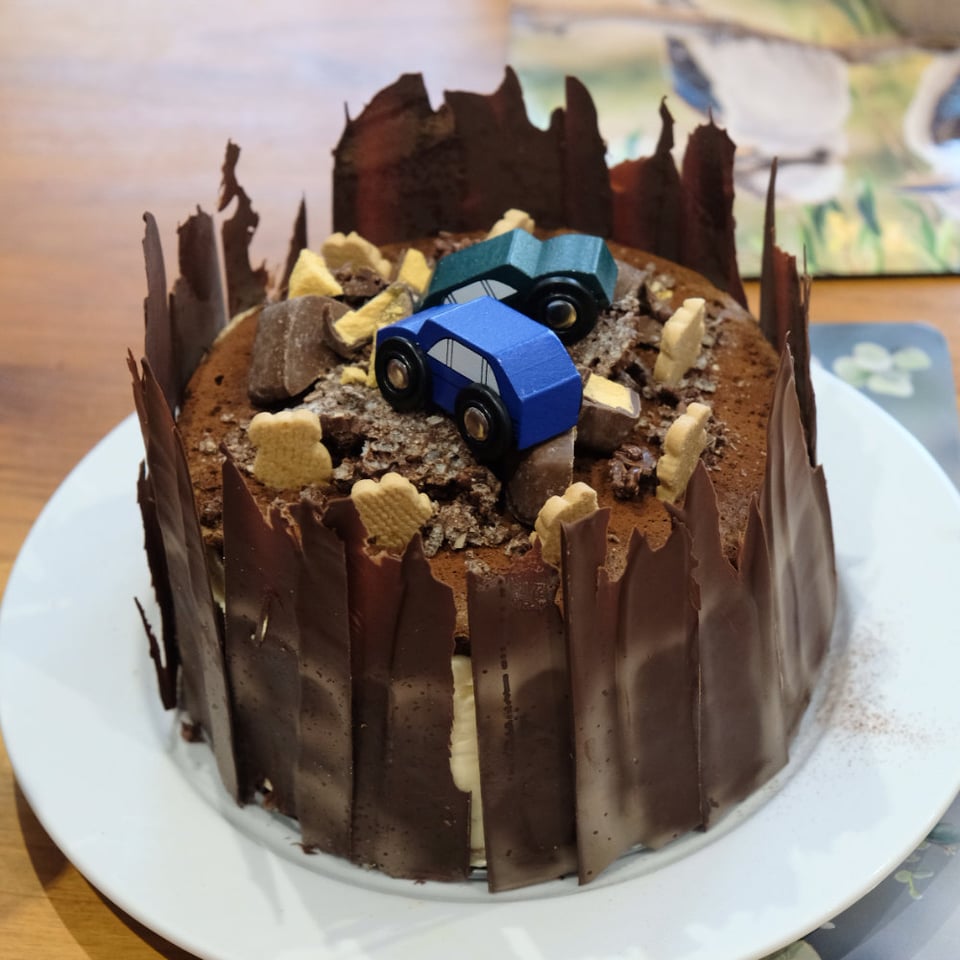Shifting the blame game: Embracing blameless culture for learning and growth
Recently, I was leading a project and it didn't go as planned. Despite my best efforts, we fell short due to external factors beyond our control.
Now, when things don't go according to plan, it's natural for our minds to wander towards blame. We look for reasons to explain outcomes that don't fit our intuition. This is called blame bias and fundamental attribution error. Blame bias is the tendency to attribute others' actions to internal dispositions, while ignoring external factors. Fundamental attribution error is the tendency to overemphasise internal causes for people's behaviour and underestimate situational causes.
The problem with a blaming culture is that it can create an environment where people are afraid to bring up problems. As leaders, we must, at best, approach bad news with a neutral attitude to foster open communication. Otherwise the team will stop bringing problems to us, and the consequences will be worse.
Instead of asking "who" was at fault when things go wrong, let's shift our focus to "why." Blameless culture is the foundation for psychological safety, which allows team members to share their concerns and learn from each other without fear of retribution. Ways to mitigate blame bias are:
- Assume positive intent
- Come up with five possible scenarios to explain the behaviour
- Be curious and ask why?
One practice that I have found helpful in fostering a blameless culture is conducting blameless post-mortems. These are structured discussions where we focus on what happened, the impact, and how we can prevent similar situations from arising in the future. Instead we examine processes and identify opportunities for improvement.
When a failure occurs, we can ask:
- What lessons can we learn?
- How can we turn this failure into a success?
- Where did I succeed as well as fail?
By adopting a blameless culture, we can create an environment where team members feel empowered to share their ideas and learn from each other. This is essential for continuous improvement and growth, both on an individual and team level.
As for my project, things that could have been done better include better communication of blockers, alignment on timeline and the importance of tasks, and possibly engaging consultants to get things done quicker.
So the next time things don't go as planned, we should focus on why instead of who. We can ask ourselves how we can turn failures into opportunities for learning and improvement. By doing so, we can can stay curious and create a more productive, positive, and open workplace culture.
~ Elle
What’s been happening?
Humanising Technology
Nicola gave the opening keynote at DrupalSouth. She asked a provocative question: Are the advantages that technology provides, around scale and reach and automating work, also a terrible flaw? Being a keynote, I wanted to step back from the immediacy of the day to day challenges in software, and look at the bigger picture. What are the big risks, and can we spot them in time to do something about them?
You can watch Nicola's talk (35min) on YouTube
Leading Engineering Teams — August workshop
There are no formal leadership training and people skills when you embark on becoming a software engineer. Yet almost every job post for software engineers will not only ask you to have extensive knowledge of how to build complex software systems but will also require you to have strong interpersonal skills to effectively communicate with the customer and other team members. At a senior level, these skills are necessary to lead healthy and successful teams that are primed for growth.
Whether you're new to leadership, have done it for ten years, currently managing other managers, or are a co-founder of a new start-up, our Leading Engineering Teams workshop will help you improve and grow your leadership skills.
Our next workshop is scheduled for August 25-28. And early bird tickets are available now!
https://blackmill.co/coaching-training/workshops/leading-engineering-teams
Podcast interviews
The lovely folks at MyCareerAngels interviewed both Elle and Lachlan recently. Both interviews are now available on YouTube, if you’re interested in hearing one or both talk about their careers and how they think about them.
Ruby Kaigi
Elle and Lachlan are travelling to Japan for RubyKaigi, April 16–18th. Despite decades working with Ruby and Rubyists, it will be the first time at this particular conference for either of them. If you’re there too, come say hi!
What are we reading?
- That's Not an Abstraction, That's Just a Layer of Indirection — Fernando Hurtado Cardenas is talking about code, but somehow we can’t help applying a leadership and process lens to this.
- What Do People Need Most From Leaders? — New research from Gallup shows the four themes of what people really need from their leaders.
- Code as Culture: How Organizational Structure Shapes Your Code – Marek Cermak with a practical walkthrough of how Conway’s Law can be applied to product teams and the implications that flow from that.
- [Australian] Employer gender pay gaps report 2023-24 – Australia’s Workplace Gender Equality Agency has released their first pay gap reports from Australian companies with 100 or more employees. Lots of interesting data here for employers and employees.
- Turn workplace conflict into collaboration – David Dye and Karin Hurt with an article from LeadDev on approaches to employ better communication tactics and understanding to turn conflict into opportunity.
- You Talk Too Much! A tool to analyze who speaks when during Microsoft Teams meetings – Alexandre Masselot developed a tool to parse a Microsoft Teams transcript and give you results as per L. David Marquet’s Team Language Coefficient
A cuppa with Sally Chung

1. What do you do? And what do you like about your work?
I lead the frontend team at Supp. I love the flexibility and autonomy in where I prioritise my focus each week. I could be: working with our product team, on the tools, mentoring, or collaborating across different teams. What I also love is being able to talk with our different team members directly in working through a problem. Whether it's our marketing, support, designers, QA and engineering team. They're all a Slack message/huddle away and I appreciate the infrequent need to schedule a meeting for it even when we could be working across four different time zones.
2. What aspect of your work do you find most challenging?
I work part time which is the work life balance that works for me, especially with a toddler. One challenge I’m not sure gets talked about enough when working part time, is the additional time it takes each week to catch up. Every following day after being away, I’m spending the first chunk of my morning getting up to speed with what’s happened while I was offline. Colleagues who capture meeting summaries are so helpful. There’s more juggling and managing my own expectations in what I can achieve each week whilst trying to not compare with my peers who work full time.
I have learned to be fairly disciplined, especially when I get into the coding zone. I want to keep going! But I know I'll need to wrap up to a point, even if the code is in an unfinished state, before I clock off in time for the school run. It’s hard at times to accept that I just have to leave things as is for a few days, and not think about it too much on my non working days.
3. What are you passionate about?
Injecting enthusiasm into the tech we're working in. I love working in the software engineering space! It's forever transforming and innovating in how we build and ship products. I do feel like the industry can easily get bogged down in the day-to-day mundane and not enough celebration on the wins. I want to be the resident cheerleader! I like to acknowledge and praise my team’s achievements , and promote experimentation. I encourage my team to express the efforts we've put into something, rather than being held back out of concern of seeming egotistical. Whether it's a new design system, tech solution or figuring out how to set up a Slack huddle into a weird vortex of cat doodles. They all deserve various levels of attention and praise.
4. What are recent accomplishments you are happy with?
I recently presented to the company on the software development principle in "shifting left". I was very happy with how well it was received. I had many questions and comments throughout the presentation. Our teams were keen to incorporate some of these new disciplines into their day to day development and form their own opinions on the process. I'm happy how open and receptive my team were in trying this new way of working. Part of that success I feel is attributed to how I’ve introduced myself into the team, and continue in fostering a safe space for open dialogue and questioning. I feel like it’s invigorated new energy for the team.
(Find out more about shifting left from Luke Sleeman’s talk on YouTube)
5. What is one mistake that you will never make again?
Solving a hard problem on the spot when I don't have enough information. They always feel half baked and not in the yummy gooey chocolate chip cookie kind of way. It's taken me a while, but I'm glad that I'm at a point in my life now where I'm comfortable in saying "I don't know, let me get back to you on this".
6. How do you manage stress?
I'm usually stressed when my list of TODOs both for my home and work life start piling up. Even when I'm getting a lot of stuff done, I stress about how I'd ever attend the rest of the incomplete tasks. What's helped me manage this stress has been shifting my mindset in how I perceive my backlog of tasks. I do this mind exercise in thinking through what would happen if I don't get this thing done myself? Can I delegate it? What's the worse case scenario if I NEVER get it done? This helps manage my brain's urgency in wanting to complete ALL THE THINGS. In the end, they're never as catastrophic or urgent as I'd had imagined them. I remind myself that I don’t need to aim for zero tasks at the end of each week.
Alongside that, I try to savour a cup of coffee/tea with a delicious snack every day. It doesn't need to be fancy but it needs to be away from my work desk. 15 minutes outside (when weather permits) with a cup of tea and a biscuit really helps mellow my brain before I get back into the swing of it. When the week is feeling stressful, I intentionally make sure I carve out time for this. Make a Slack reminder, calendar event or even better, get your colleagues on board so that we're all doing it.
7. What is the best advice you can give?
Have somewhere handy and accessible where you can note down any achievements that made you proud. Could be a note book or even just a simple note taking app on your phone. Don't over complicate the process. (If you're someone like me that collects fancy stationery, totally a good excuse to finally use it!) Years can feel like it's going by faster each year. This little exercise can help remind and relive those wins and help look back in what you've accomplished every year.
8. What one thing would you change about our society?
It’s not something new but something we could keep striving to get better at. I want our society to get better at being kinder to each other. It doesn't cost us much as individuals but can have lasting, impactful effects in how we shape our communities.
9. What are your goals or aspirations for this year?
I'm grateful to have a fully remote job that gives me that flexibility and work/life balance. I can easily fall into hermit mode though, so my goal for 2025 is to intentionally plan and also say yes to opportunities where I can see people in person.
I'd also like to look into wildlife care. I’m looking into helping to transport animals, as I'd love to start contributing in helping care for our wildlife.
Career wise, I'd like to increase my work hours, though still in a part time fashion. I need to be mindful to not overcommit and burn myself out.
What are we cooking?
I don’t have a recipe but would like to have some tips and tricks in how to channel a Women’s Weekly style birthday cake for those who are time poor.
- Use a fresh cream style icing. It’s easier to spread and the unevenness looks intentional.
- If the cake needs eyes, don’t draw them. Use ✨ googley eyes ✨. You no longer need to worry about drawing them evenly, and it gives it bonus character.

3. If you’re really short on time, melt some chocolate. Spread it on baking paper and cut them into strips when cooled. Line the chocolate around a round cake and top with crushed up biscuits. Throw some toys on top and wow, a decorated cake!

And we’re out
Thank you for showing an interest in our newsletter and we hope that you enjoyed the read. Feel free to contact us if you have any feedback, a burning question, or just a recipe that you would like to share.
Until next time, keep learning!
Everyone at Blackmill